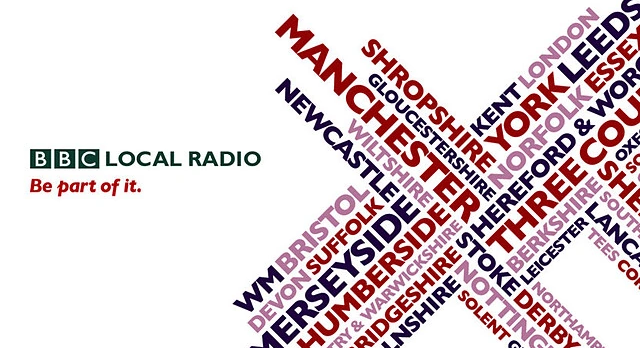The BBC yesterday announced major changes to its local radio service, including BBC Radio Shropshire. Local broadcasting will be restricted to eight hours during weekdays – 6am to 2pm. After that, stations will switch to sharing programmes across a wider area.
The BBC has only published limited details so far. I am told that other sources which seem to come from a briefing to local BBC managers yesterday are probably correct.
From what we know so far is that BBC Radio Shropshire will keep two local shows. The breakfast show, currently hosted by Adam Green, and the morning show, currently hosted by Jim Hawkins. But in the afternoon, programming will be shared with Coventry and Warwickshire, Shropshire and Hereford and Worcestershire. On evenings and weekends broadcasting will be over the whole of West Midlands. Late night and early morning, programming will be national.
The proposed reorganisation of BBC local radio is ambitious and will create a new structure for radio journalism outside London. It could make it more powerful. It will almost make it less local.
Changes in BBC local radio have been underway since its inception with BBC Radio Leicester in 1967. Opposed at the time by the Conservatives and much of the national and local print media, but driven forward by BBC’s Director of Radio Frank Gilliard, stations began broadcasting across the country.
The relationship between local news gathering and the national news team has always been difficult in the BBC. Local radio was initially banned from its own generating its own news but the pioneers of local public radio found ways around that. Over the years, BBC local radio stations have excelled in local news using their own reporters and presenters, as well as reports from their local communities.
Over more than six decades, BBC local radio has built a bond with local communities. But it has done much more than that. It has helped build communities by connecting people, by sharing their miseries and their celebrations, by highlighting their struggles and helping them champion their causes by giving them a voice.
With fewer local newspapers sold year on year, local radio has never been more important in keeping communities informed.
The reorganisation will see eleven area teams of “investigative” journalists across England. That will lead to the relocation, or redundancy, of local journalists. And even in an internet age, journalists work better when they can bounce ideas around in a single base. But a journalist in Coventry can’t understand what its like in rural Shropshire.
The new teams of journalists will work on TV, radio and digital platforms. Which makes sense.
Local sport will still be broadcast locally. Shrewsbury Town and AFC Telford will still be covered live. But there is some doubt about local music. Folk music has never been popular with BBC bosses and the weekend programming could be for the axe. Introducing, the Radio 1 funded showcase for local talent, will probably continue. But will it still be local or will it go supra-local or regional? We don’t yet know. It could mean that our local music hopefuls could be ignored in programmes dominated by the city scene not the rural scene.
The mistake BBC bosses always make is that they think they are broadcasting to communities. They don’t realise they are broadcasting for communities and with communities.
BBC local radio has always been seen as the cuckoo in the nest for BBC managers. Disruptive. Something that the BBC in London is uncomfortable with. It should remain that way.
But I fear that central control is about to overwhelm local innovation. Our local voice will no longer be championed by a local station but reported by someone in a city far away.


Being cynical it is a controlling move to shut down events that are local, to replace it with central control.This move will continue the reduction in local news info as local papers are also in decline.A way of controlling the population to/for govnt views.